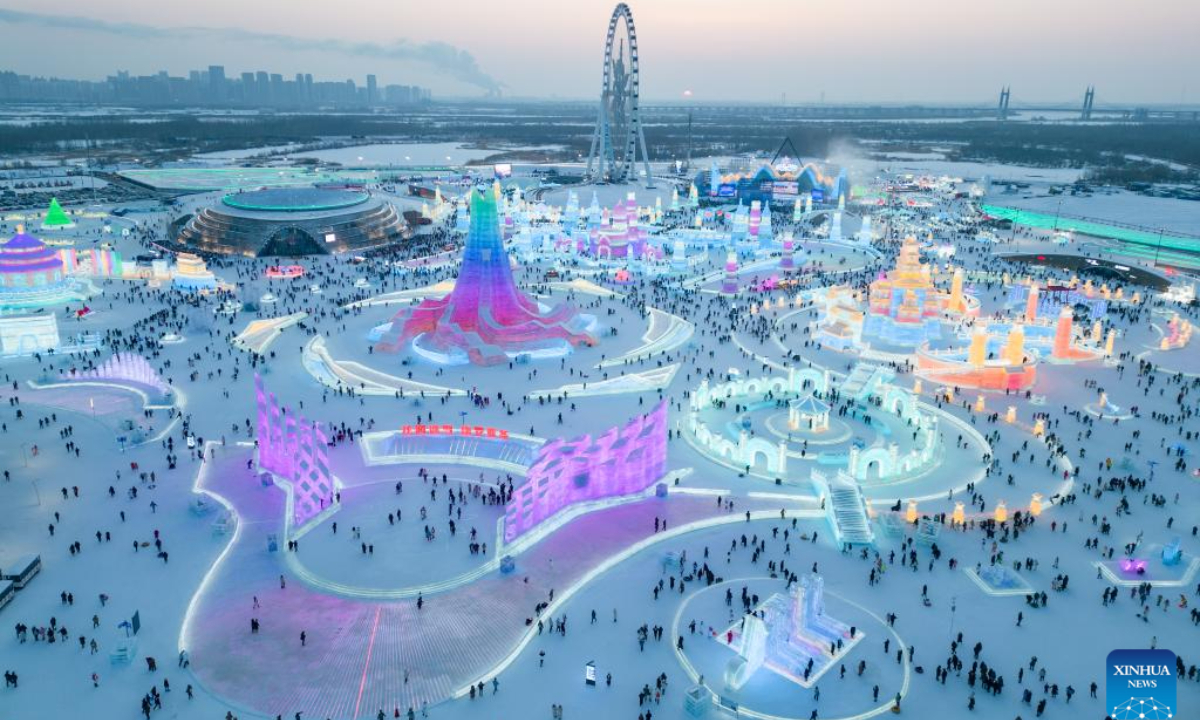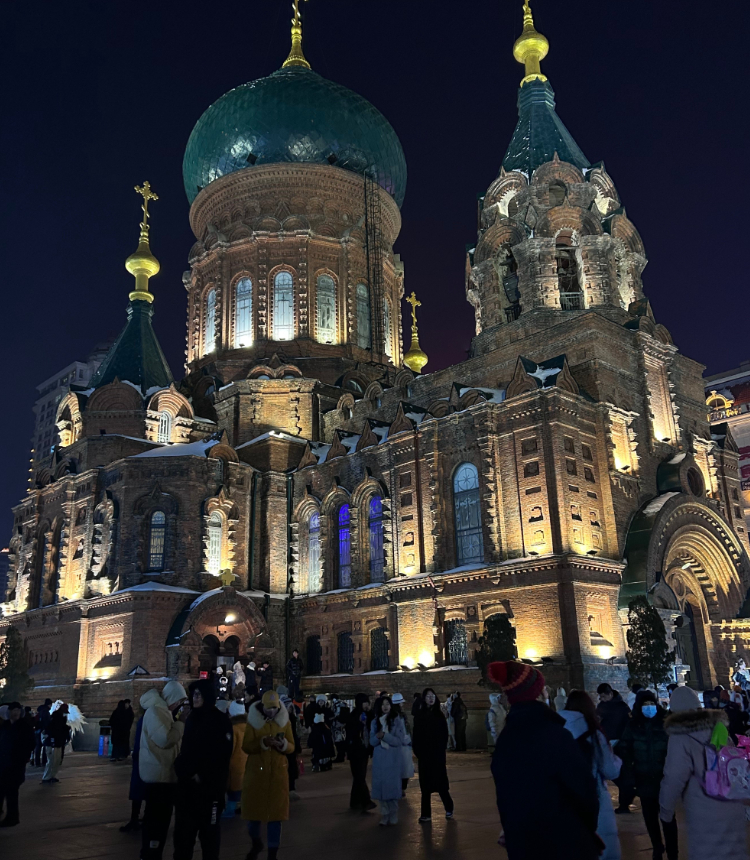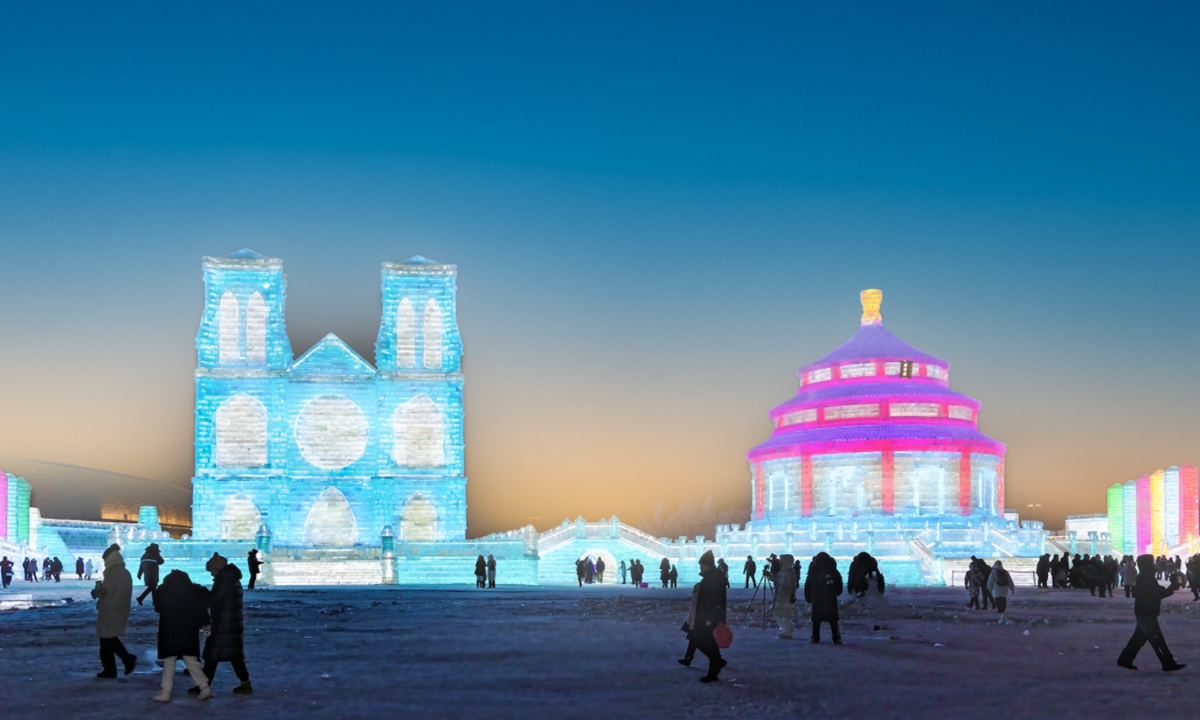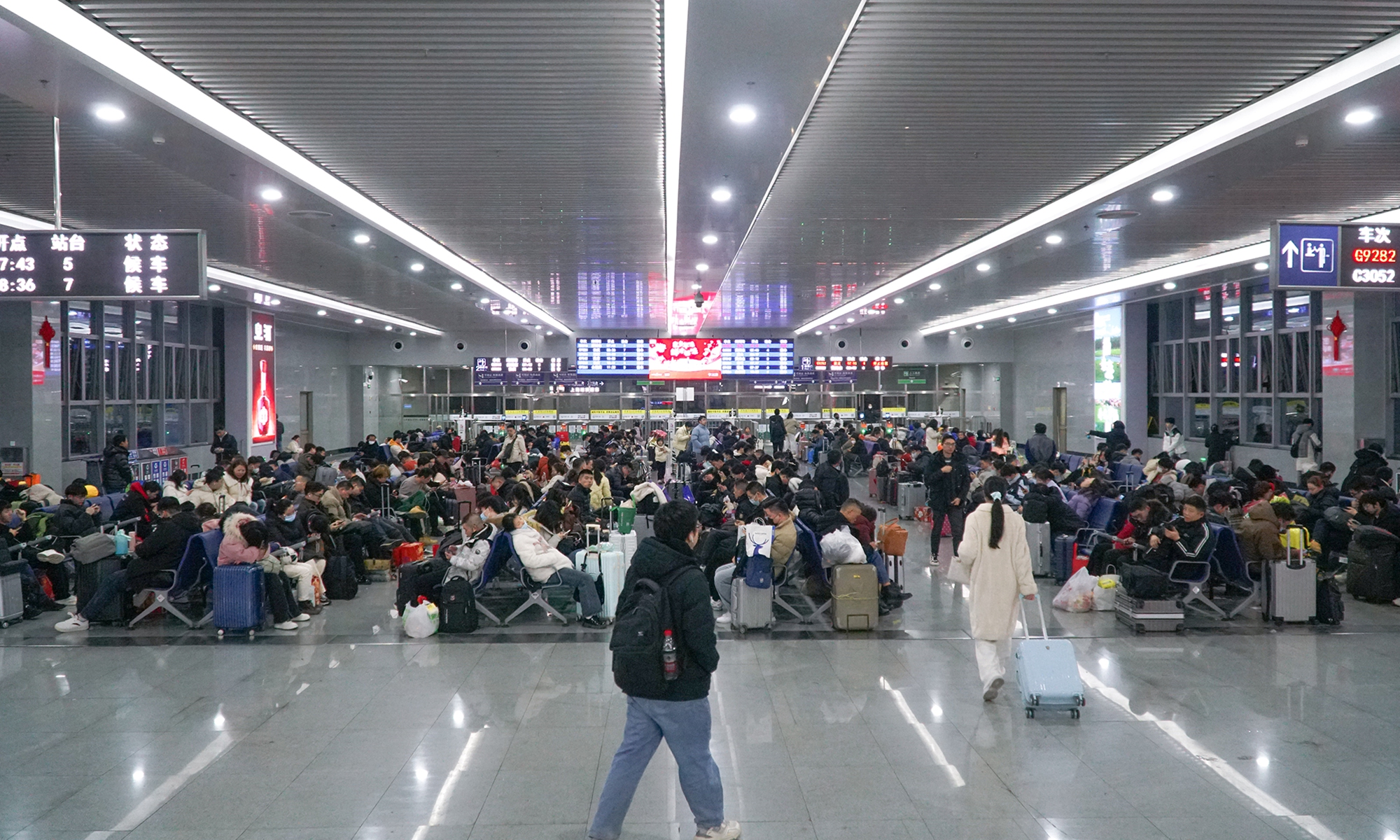GT on the spot: With snow, ice and hospitality, Harbin attracts tourists from all over the world

This aerial photo taken on January 5, 2024 shows visitors having fun at the Harbin Ice-Snow World in Harbin, northeast China's Heilongjiang Province. Photo: Xinhua
Wearing puffer jackets, hats and gloves, tens of thousands of tourists have been flocking to the splendid exotic ice city of Harbin in Northeast China, despite the freezing cold.
A week before the Spring Festival holidays, Global Times reporters traveled to Harbin to see how a city with a traditional industrial background has become a "must-go" destination for people from around the world.
The city saw 3.05 million tourist visits and generated 5.91 billion yuan ($0.83 billion) in tourism revenue during the three-day New Year's Day holidays, new records in both cases, according to the local tourism bureau.
As tourism continues to heat up in Harbin, the city is drawing an increasing number of international tourists thanks to its creativity and unique city landscapes as well as excellent ski resorts in the outskirts.
Harbin has made a good impression on international tourists, some of whom were initially hesitant about coming due to the cold weather.
Among them was Yizhe, a 30-year-old vlogger from Belgium, who has now become a fan of the city. "I heard about Harbin when I studied in Chengdu about three years ago. I know that the winter is freezing but the locals are super outgoing and humorous," he said.
"I never expected the city to be this popular," he told the Global Times. "But it all makes sense after I've had so much fun by participating in a range of experiences, from savoring local barbecues to skiing." He was also encouraged by his friend to have a deeper exploration of what makes Harbin a remarkable destination all year round.

Tourists enjoy the exotic architecture of St. Sophia Cathedral, near Central Street in downtown Harbin, Northeast China's Heilongjiang Province on January 29, 2024. Photo: Zhang Weilan/GT
Harbin has some Russian influences in its unique mixture of architecture, literature, music and culture. The St. Sophia Cathedral is just one example, a Moscow-born foreign student named Ivan who is studying cross-cultural communication at Heilongjiang University told the Global Times.
Adrien, a French tourist, talked to the Global Times in front of the cathedral, which has become a tourist attraction. "We have noticed that Harbin is becoming a more and more popular tourism destination. The amazing winter landscapes with ice and snow activities remind me of those of my hometown in France. My wife and I spent a lot of time in the snow valley in the outskirts of the city."
2024 marks the 60th anniversary of the establishment of diplomatic relations between China and France and is also the China-France Year of Culture and Tourism, so anticipation is high for closer people-to-people exchanges, further strengthening the connections between the two sides.
"It's a wonderful spot to visit and we really enjoyed the views and the skiing. We have many options for skiing in Europe, and now we have Harbin as well," Adrien said.
Harbin's ice and snow tourism not only brings joy to visitors but also offers them a new perspective on this northeastern city, particularly for those from outside the region.
"You cannot go to one place and say 'I experienced China.' Every little section, every province you explore is like a whole new country. There are differences in terms of dress, cultural styles, food and others. Coming up this far north is something that I feel comfortable with," Clayton Matta, resort general manager for Club Med in Yabuli, an outskirts area, told the Global Times.
"I'm from a farm in South Africa, so I'm not used to the busy city. Smaller communities and natural scenery are a lot more familiar for me. Everybody knows each other and they're always thinking about what they can give. That's the local community here; you can see it in the hospitality and kindness," Matta noted.
"Travelling to local tourist sites breaks down stereotypes and also brings more in-depth understanding for the diversified cultures," said Matta.
Almost 50 percent of the company's clientele over December was international, Matta added, with a lot of guests from Indonesia, Thailand, Malaysia and Singapore, which used not to be common in this northern area of China.




